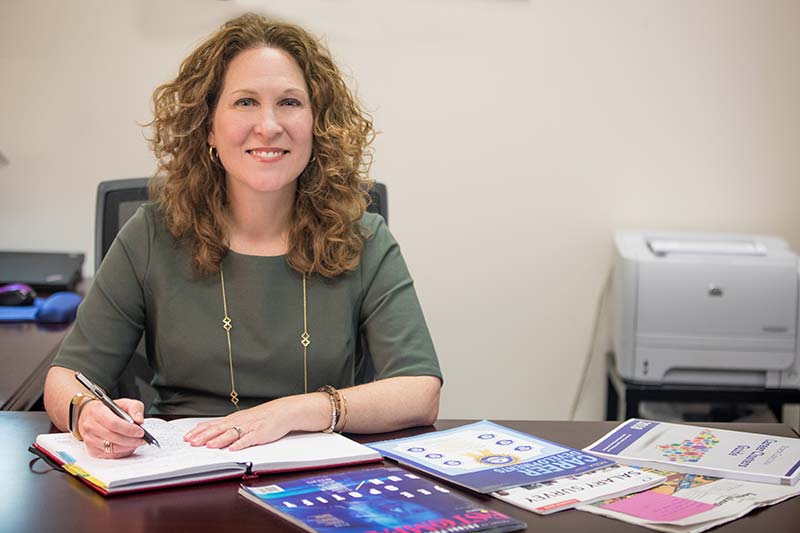Powerful Partnerships
- By Dana F. Sumner, Director, Career Planning, Gallup-Certified Strengths Coach
- Published

At Meredith, all students are learning more about their talents – or the natural way they think, feel, and behave. Over the course of their four years at Meredith, students create plans for academic, experiential, financial, and career success based upon their natural talents. This strengths-based advising and coaching model is called StrongPoints. Whether you have taken the CliftonStrengths assessment or not, I encourage you to think about and jot down your talents or those things you do well.
To identify your talents, answer the following questions:
Talents help us understand who we are. They describe us. They influence our choices. They direct our actions. They explain why we are better at some things than others. Overall, they help us filter our world. Our talents hold the greatest opportunity for success. When we invest in our talents and consistently apply them toward a specific task or towards achieving a specific outcome, then we are using them as a strength! Each of us has talents and the more we are intentional about understanding and using them, the more we know how to leverage them to do things exceptionally well.
Gallup’s research tells us that people who focus on using their talents are three times more likely to report having an excellent quality of life and are six times more likely to be engaged in their jobs. Individuals using their strengths look forward to going to work. They have more positive than negative interactions with coworkers. They treat coworkers and clients better. They are excited to tell their friends that they work for a great company. They achieve more on a daily basis. And, they have more positive, creative, and innovative moments. Has this been your experience? Do you work in this type of environment?
Our strengths grow in context of relationships, team, and organizations. When we depend on others to apply their talents to what we do well, then we will achieve a higher quality outcome than if we had attempted a task completely on our own. In general, we have a tendency to work towards being “well-rounded”. But the reality is that there are things that we’re really good at, and there are other things that others are really good at. We have to depend on others to lend their strengths to ours to create teams and communities that are well-rounded rather than a focus on being a well-rounded individual.
Think about your own teams or partnerships – those at work, at home, in your community, and elsewhere.
Pinpoint the ways you complement each other’s strengths. Do you agree that you need each other to get the job done? And, do you realize that he or she does some things better than you do, and you do some things better than he or she does?
We know that no one is good at everything. Realizing this and incorporating this strengths philosophy in my own life and work has personally released me from the burden I used to feel to be good at everything, especially in my work. I need others; I need partnerships. When I team up with others whose strengths are different from my own and develop and rely upon our complementary partnership, we both excel, and my life is richer and fuller as a result. We share our expertise and together we are the best we can be.
As you can imagine, there is a degree of vulnerability necessary to say to another person, “I need to rely on this talent of yours. I don’t have it. And here is a talent I have that I can offer you.” We don’t want to admit that we have areas of non-talent, but everybody does. This mutual recognition provides the best opportunity for success…and enjoyment of the process along the way! A colleague recently said to me, “those who are collaborative on this campus have the most opportunity for success.” I have experienced this in my own partnerships and teams at Meredith College. I have realized when I join forces with someone who has a complimentary strength, our strengths cancel out our weaknesses and together we accomplish what could not be done separately.
For example, my ability to easily connect with others and build and sustain relationships quickly, combined with my colleague’s attention to detail and a focus to complete tasks gave us the opportunity to implement a new campus wide program efficiently and gain buy in from all constituents along the way. In addition, my ability to collaborate easily and see the connection between our mission and vision coupled with my colleague’s ability to use words to describe these examples, enabled us to bring ideas and events vividly to life. As a result, we continue to create stories that captivate and demonstrate our impact and value to the campus community. What examples of complementary strengths can you think of in your own partnerships?
I hope that you will find joy in collaborating with others. In any partnership it takes work and investment to understand the other person. Let’s use the understanding of our own talents and strengths to appreciate others’ talents and strengths and find ways to leverage our differences for the benefit of the partnership or team. When members of your team are aware of each other’s talents then they understand how each person is inclined to think, feel, and act. This awareness helps the team navigate issues that arise. As a result, I am confident you will not only realize individual and team excellence, but you will be more engaged in your work and you will experience greater profitability and productivity as a result.
Gallup, Inc. (2017). Strengths based coaching with managers and teams. Gallup Digital Learning Center. Retrieved from www.gallup.com.
News Director
316 Johnson Hall
(919) 760-8087
Fax: (919) 760-8330


3800 Hillsborough Street Raleigh, NC 27607-5298 | (919) 760-8600 Fax: (919) 760-8330 | © 2022 All Rights Reserved.